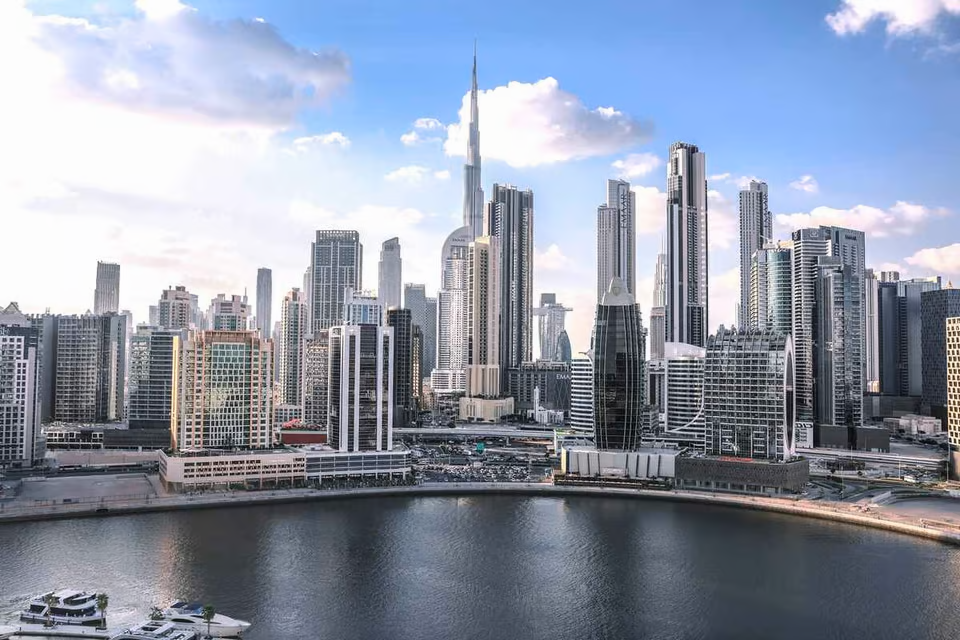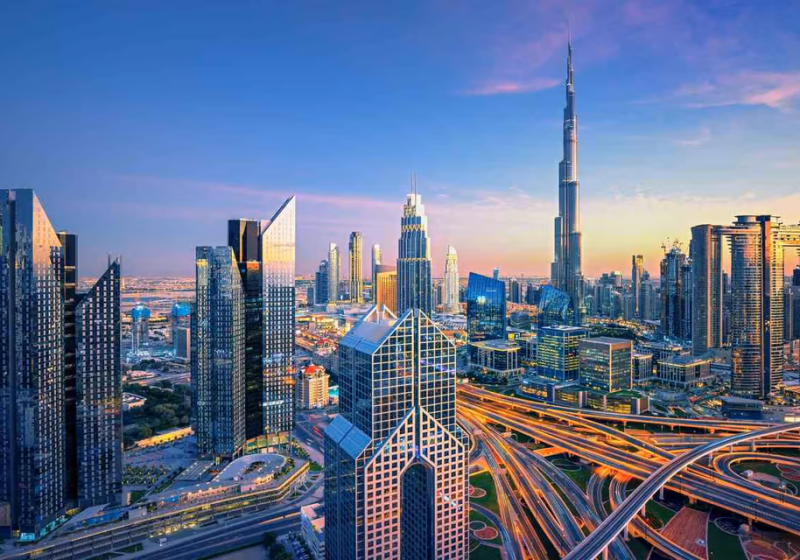As the spectre of geopolitical uncertainty reasserts itself, investors and entrepreneurs across the world are recalibrating their portfolios, citizenships, and bases of operation. With the United States 100 days into Trump 2.0 — f a Trumpian resurgence — the global elite finds itself asking a pressing question: where is truly safe?
For a growing number, the answer is emerging clearly: Dubai.
The glittering emirate, once seen merely as a regional business hub or tax haven, is now being seriously evaluated — and embraced — as the world’s ultimate safe haven in a time of resurgent nationalism, regulatory unpredictability, and ideological confrontation.
A New Era of Global Anxiety
Donald Trump’s reemergence onto the world stage — as U.S. President — signals a return to an era of “America First” economics, aggressive tariff policies, immigration crackdowns, and volatile foreign relations. For global investors, corporate executives, and even ordinary wealthy individuals, this introduces deep and complex risks.
The threat matrix is no longer limited to market swings. It now includes:
- Capital restrictions or onerous repatriation taxes
- Currency volatility driven by “America-centric” monetary policy
- Legal unpredictability in traditionally stable jurisdictions
- Public unrest tied to highly polarizing governance
Europe, once a fallback, offers little consolation. The continent faces its own populist tremors, from the rightward drift of Italy and France to Brexit’s still-unfolding consequences. Asia, while dynamic, is increasingly embroiled in geopolitical tensions — notably between China and the West.
The appetite, therefore, is shifting toward a geography that offers political neutrality, economic freedom, global connectivity, and a welcoming environment for wealth. And here, Dubai is capitalizing on the moment.

Why Dubai Now?
1. Political Stability
In a world where elections have become high-stakes gambles, Dubai’s governance model offers an oasis of predictability. The UAE’s leadership, under Sheikh Mohammed bin Rashid Al Maktoum and President Sheikh Mohamed bin Zayed Al Nahyan, has consistently prioritized economic openness, security, and innovation.
The absence of messy political transitions, populist upheavals, and partisan swings has been a crucial attractor for those seeking a predictable policy environment.
2. Economic Liberalism
While many nations are flirting with protectionism and interventionism, Dubai remains stubbornly committed to free markets. There are no personal income taxes, no capital gains taxes, and no estate duties on most assets — a framework that seems almost radical when compared to new wealth taxes being proposed from California to Berlin.
Moreover, the UAE has actively modernized its business environment, from enabling 100% foreign ownership of companies to introducing long-term Golden Visas for investors, professionals, and creatives.
3. Regulatory Innovation
Rather than resting on past laurels, Dubai is constantly updating its regulatory landscape to stay competitive. From introducing virtual asset regulations (VARA) to pioneering real estate tokenization programs, it has demonstrated an unusual willingness to embrace financial innovation — without the heavy regulatory burden that hampers places like the U.S. or Europe.
This agility allows wealth managers, fintech entrepreneurs, and multinational firms to operate with clarity and speed.
4. Cultural and Global Accessibility
Unlike the sometimes exclusive ecosystems of Monaco or Singapore, Dubai markets itself as an open, cosmopolitan city. English is widely spoken. Business is conducted across all time zones. Airports link easily to Africa, Europe, Asia, and North America.
This cosmopolitanism extends socially: Dubai offers thriving hubs for African entrepreneurs, Russian expatriates, British financiers, Indian tech executives, and American venture capitalists — all coexisting in relative harmony.
It is, quite literally, a global village for the globally mobile.
Real Estate as the New Passport
Perhaps the clearest sign of Dubai’s emerging role as a safe haven lies in its real estate boom.
Luxury property transactions surged to record highs in 2023 and 2024, with areas like Palm Jumeirah, Downtown Dubai, and Dubai Hills Estate seeing price appreciation rivaling, and sometimes exceeding, London and New York.
According to Knight Frank, prime residential prices in Dubai grew by over 16% in 2024 — the highest globally. Savills reports that Dubai now ranks as the top city for millionaire migration, having attracted over 5,200 HNWIs last year alone.
Critically, Dubai’s property market is not fueled by debt (as in 2008) but by cash-rich buyers seeking asset security, residency rights, and hedging against political risks at home.
Buying a qualifying property (starting at AED 2 million, approximately USD 545,000) entitles investors to a renewable Golden Visa — an attractive offer for those wanting a foot outside of their turbulent home countries.
The New Face of Dubai’s Influx
While previous waves of investors were dominated by regional elites — Saudis, Kuwaitis, Indians — the new influx is far more diverse:
- American tech entrepreneurs wary of regulatory overreach
- European families anxious about wealth taxes
- African business magnates seeking dollar-based safe harbors
- Asian venture capitalists hedging against China’s tightening controls
Anecdotal reports suggest an uptick in Americans, in particular, moving operations to Dubai or establishing “Plan B” residencies — a trend that was once rare.
In private conversations, wealth managers note that for the first time, U.S. passport holders are asking about secondary residencies and overseas asset protection, a phenomenon historically associated with Latin Americans or Middle Eastern clients.
Dubai, through its combination of lifestyle, low taxes, and strategic location, now competes not only with the Caribbean or European havens — but with New York and Los Angeles themselves.
Risks on the Horizon?
Of course, Dubai’s ascent is not without challenges.
- Overreliance on real estate: If geopolitical anxiety abates, there is a risk that property values could correct sharply.
- Global compliance pressure: The UAE was only recently removed from the Financial Action Task Force (FATF) “grey list.” Ongoing scrutiny from Western regulators remains a concern.
- Perception issues: Critics argue that Dubai’s economic openness sometimes attracts problematic actors — although authorities have notably toughened enforcement in recent years.
Moreover, while Dubai has skillfully balanced relationships with both the West and East, intensifying U.S.-China tensions could place pressure on this careful diplomacy.
Yet, in the balance of probabilities, few jurisdictions today offer such a potent cocktail of security, freedom, and opportunity.
Conclusion: Safe Haven of the Future?
In the Trumpian Times ahead — whether defined by nationalist fervor, regulatory unpredictability, or societal polarization — the global elite will increasingly prioritize jurisdictions of control over jurisdictions of tradition.
Dubai, once dismissed as a flashy upstart, has matured into a serious contender for the world’s footloose capital and entrepreneurial classes.
As a Swiss banker recently quipped at a private wealth conference in Abu Dhabi: “Zürich has the vaults. London has the lawyers. But Dubai has the future.”
If 2016–2020 marked the era when geopolitics grew wild, then 2025 may mark the moment when Dubai moved from being a luxury outpost — to becoming the ultimate safe haven.



